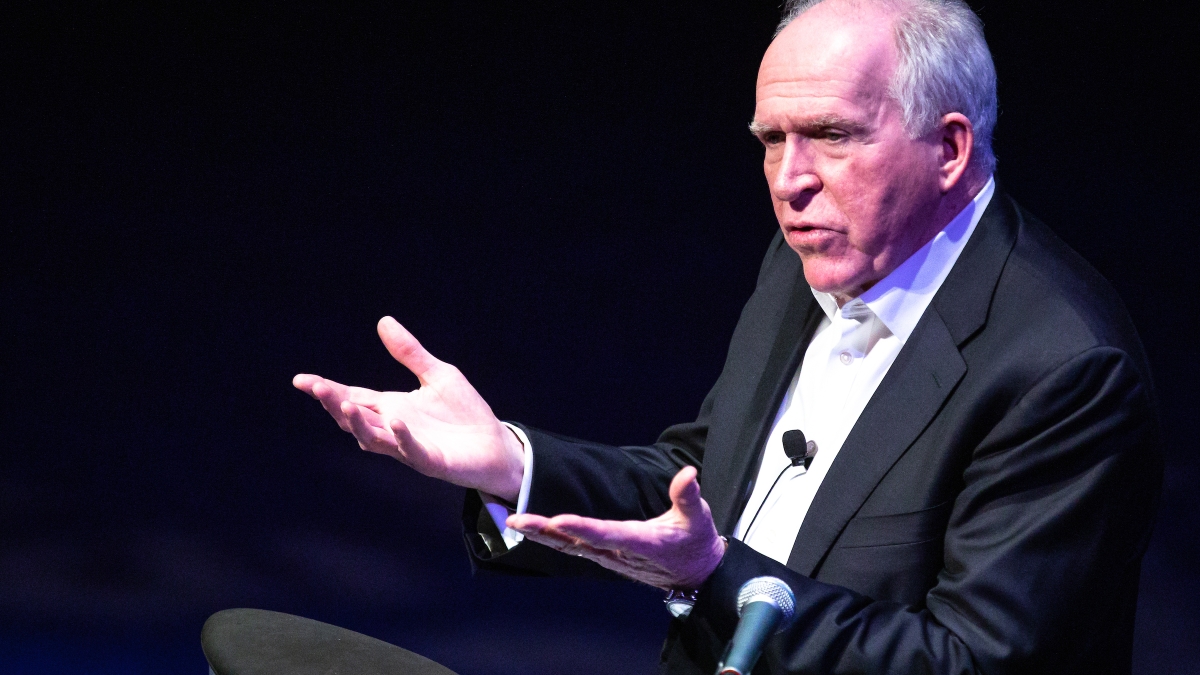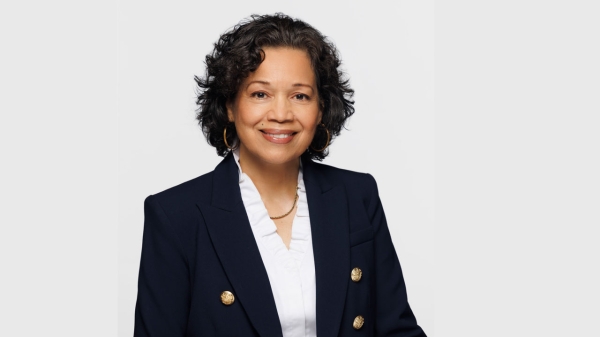Former CIA director addresses political discourse in America
Several phenomena are driving populist movements in the world, says John Brennan at annual ASU Rhodes lecture

Former CIA director John Brennan warned that the complexities of modern-day governing are causing leaders around the world to hold so tightly onto power that they risk becoming demagogues.
“The leaders are trying to protect themselves and their base; they’re delegitimizing the press, and they’re trying to undermine the independence of the judiciary, and that’s authoritarian,” Brennan said.
Brennan, who served as director of the Central Intelligence Agency from 2013 to 2017, addressed a crowd at the Tempe Center for the Arts on Thursday night. His talk, titled “The State of Political Discourse in America,” was the annual John J. Rhodes Lecture in Public Policy, presented by Barrett, The Honors College at Arizona State University.
“As the challenges of governing in the 21st century become more complex, they’re stifling opposition, they’re playing on the fears of people — about people who are coming across the border — and they’re offering simple solutions, like reviving an industry that’s no longer relevant in a modern economy.”
Brennan said that several phenomena are driving populist movements in the world, including globalization, the digital domain and disparity in wealth.
“This disparity of wealth and opportunity really is a concern and is something that is motivating a lot of people to say, ‘What about me?’,” he said.
“In addition, you have increased migration, and you have people who don’t fit a national identity. That’s why the populist movement is being fueled by this sentiment and this tug of war between the beneficiaries of globalization and those who feel victimized.”
Brennan cited Brexit as an example.
“A lot of people in rural areas said, ‘We need to go back to the good old days,’” he said.
“All the major cities and the youth voted to remain in the European Union and recognized that it’s impossible to extricate themselves from the global environment.”
Brennan said that politicians who put loyalty to party, or campaign donors, or personal gain above their responsibilities to their constitution do a disservice to the nation.
“They also send a disturbing signal to the next generation of leaders about who we are as Americans,” he said.
“They should be held accountable.”
Brennan never mentioned President Donald Trump by name but he said that he will continue to be critical of elected leaders “who do not uphold those standards of decency.” Brennan’s security clearance was pulled last year after he harshly criticized Trump.
The lecture is named for John J. Rhodes, who represented Arizona in the House of Representatives from 1952 to 1982. Brennan said that Rhodes understood bipartisanship.
“John Rhodes was an example of a politician who was able to reach across the aisle on so many issues, like energy and education and the federal budget,” Brennan said.
“He was an example of the ability to work with those who have a different perspective than you.”
Earlier on Thursday, Brennan met with Barrett students.
“I’m impressed with the intellectual curiosity of the students I meet, and I always encourage them to consider public service,” said Brennan, who joined the CIA in 1980.
“I tell them to think about what they’ll do to make this country better. The rewards are priceless, and you know you’re part of something larger than yourself.”
Top photo: Former CIA Director John Brennan delivers the 2019 John J. Rhodes Lecture on Feb. 28, 2019, at the Tempe Center for the Arts. He spoke to nearly 600 people about the current state of the political dissonance. Photo by Charlie Leight/ASU Now
More Law, journalism and politics

CBS News president to give keynote address at Cronkite School’s spring convocation
Ingrid Ciprián-Matthews, president of CBS News, will serve as the keynote speaker at Arizona State University’s Walter Cronkite School of Journalism and Mass Communication spring 2024 convocation. …

School of Politics and Global Studies director's new book explores mass violence
Why do people commit atrocities and why are certain groups, including religious and ethnic, more vulnerable to large-scale violence? These questions are explored in a new book by Güneş Murat Tezcür…

ASU faculty contributing to improvement of Wikipedia
Many academics have a love-hate relationship with Wikipedia. While the website has information about almost anything you can imagine, the credibility of that information is sometimes suspect. Tracy…